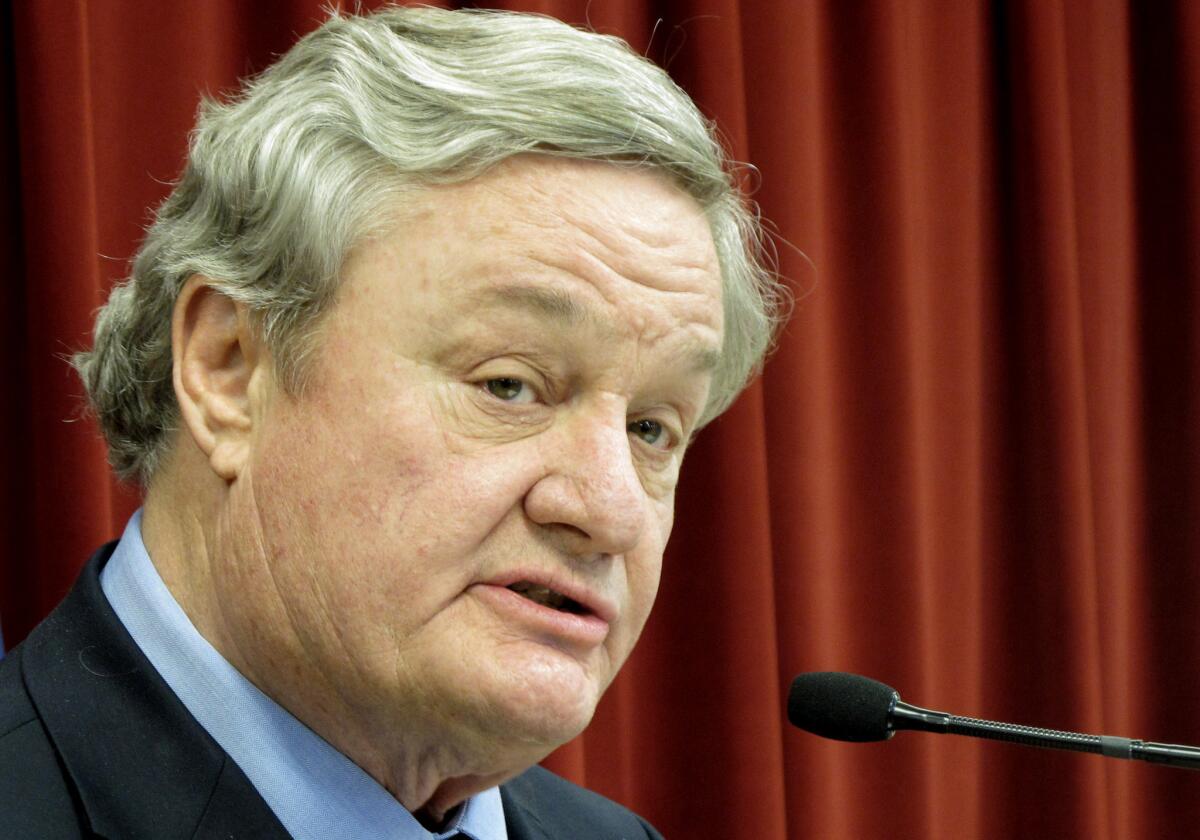Federal judge temporarily blocks North Dakota abortion law

A federal judge has temporarily blocked the North Dakota law that bans abortions when a fetal heartbeat is detected, the nation’s most stringent limit on a women’s ability to terminate her pregnancy.
Under the law, which had been scheduled to go into effect Aug. 1, a woman could be prevented from seeking an abortion as early as six weeks into her pregnancy if a fetal heartbeat is detected. North Dakota passed the law at the end of March, part of a package of curbs in four laws that passed the Republican-controlled Legislature and were signed by GOP Gov. Jack Dalrymple.
In a ruling released Monday, U.S. District Judge Daniel Hovland in Bismarck granted a temporary injunction that blocks the heartbeat law from taking effect. He also stated that the parties, the state and the sole clinic that performs abortions in the state would have 30 days to respond if they felt a trial was needed on the issues.
Jeff Zent, a spokesman for Dalrymple, told the Los Angeles Times he could not comment on whether the state would seek a further hearing. The governor’s office does not comment on ongoing litigation, he said.
In his 22-page ruling, Hovland said the North Dakota law was in conflict with the federal constitutional guarantee to an abortion. In 1973, the U.S. Supreme Court in Roe vs. Wade and other cases held that a woman had a constitutional right to abort a fetus before it reached viability, usually at 22 to 24 weeks.
“The state has extended an invitation to an expensive court battle over a law restricting abortions that is a blatant violation of the constitutional guarantees afforded to all women,” Hovland wrote in a 22-page decision emailed to reporters. “The United States Supreme Court has unequivocally said that no state may deprive a woman of the choice to terminate her pregnancy at a point prior to viability. North Dakota House Bill 1456 is clearly unconstitutional under an unbroken stream of United States Supreme Court authority.”
Although it is the most draconian, the North Dakota law is only part of a push underway to limit the terms and conditions under which abortion can be made available. In addition to trying to scale back the window of time in which an abortion can be legally obtained, several states, including most recently Texas, have increased regulations governing abortions, moves that could force some clinics to close.
Since January, laws containing 52 line items restricting abortion have been enacted in 19 states, according to the Guttmacher Institute, a New York-based research group that supports abortion rights. At least a dozen cases have been brought against state laws by the New York-based Center for Reproductive Rights, which represented North Dakota’s sole clinic, the Red River Women’s Clinic in Fargo.
“The nation’s most extreme abortion ban has been blocked, and the message to hostile politicians could not be clearer: The rights of women guaranteed under the U.S. Constitution and protected by 40 years of Supreme Court precedent cannot be legislated away,” said Bebe Anderson, director of the U.S. Legal Program at the Center for Reproductive Rights.
“Today’s decision ensures for the moment that the women of North Dakota won’t need to worry whether they will still have the same constitutionally protected rights as women living in other parts of the United States.”
North Dakota argued that the heartbeat law was constitutional because it did “not ban all abortions prior to viability because abortions can be performed up until the point at which a fetal heartbeat is detected.”
It also maintained that courts have upheld a state interest in regulating abortions -- to protect a woman’s life, for example.
In his ruling, Hovland noted that termination of a pregnancy before viability “has consistently been upheld” in federal courts, including the U.S. Supreme Court. Before viability, however, “the state’s interests are not strong enough to support a prohibition of abortion or the imposition of a substantial obstacle to the women’s effective right to elect the procedure,” he wrote, quoting from other federal rulings.
ALSO:
Texas roller coaster death: Manufacturer sends investigators
Cleveland-area man charged with kidnapping, murdering three women
After ‘Justice for Trayvon’ rallies, protesters defend George Zimmerman
More to Read
Sign up for Essential California
The most important California stories and recommendations in your inbox every morning.
You may occasionally receive promotional content from the Los Angeles Times.











